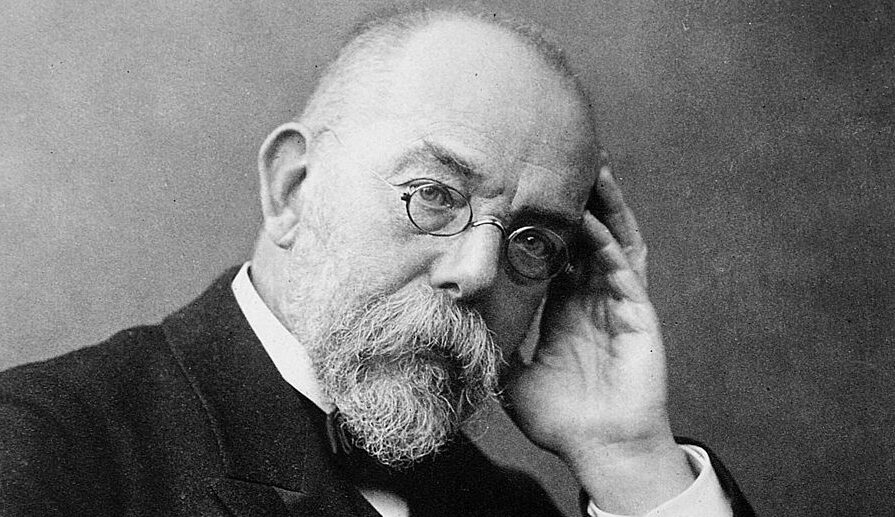
Robert Koch was a German physician and microbiologist who made significant contributions to the field of medicine. Born on December 11, 1843, in Clausthal, Germany, Koch became interested in science and medicine at a young age. He attended medical school at the University of Göttingen, where he studied under famous scientists such as Rudolf Virchow and Friedrich Gustav Jacob Henle.
Koch’s groundbreaking research focused on the study of bacteria and infectious diseases. In 1876, he discovered the bacterium that causes anthrax, a disease that affects both animals and humans. This discovery established Koch as a leading figure in the field of microbiology and earned him international acclaim.
Over the course of his career, Koch made several other significant discoveries, including the identification of the bacterium that causes tuberculosis, and the development of techniques for isolating and cultivating bacteria in the laboratory. He also pioneered the use of staining techniques that allowed scientists to better visualize and study bacteria.
Koch’s wealth came from the numerous awards and honors he received for his work in the field of microbiology. In 1905, he was awarded the Nobel Prize in Physiology or Medicine for his work on tuberculosis. He was also awarded the Prussian Order of the Black Eagle, the highest civilian honor in Germany, and was knighted by Queen Victoria of England.
Despite his success, Koch remained humble and dedicated to his work throughout his life. He continued to conduct research and publish scientific papers until his death in 1910.
Today, Robert Koch is remembered as one of the most important figures in the history of medicine. His groundbreaking discoveries laid the foundation for modern microbiology and revolutionized the field of infectious disease research.
Timeline of the key events in Robert Koch’s life:
1843 – Robert Koch is born on December 11 in Clausthal, Germany.
1862-1866 – Koch studies medicine at the University of Göttingen.
1866-1872 – Koch serves as a military physician and conducts research on the nature of wound infections.
1876 – Koch discovers the bacterium that causes anthrax, a significant breakthrough in the study of infectious diseases.
1880 – Koch develops a staining technique that allows bacteria to be visualized and studied under the microscope.
1882 – Koch discovers the bacterium that causes tuberculosis.
1883 – Koch develops a technique for cultivating bacteria in the laboratory, allowing for more detailed studies of their properties.
1890 – Koch publishes a paper on the use of heat to kill bacteria, leading to the development of sterilization techniques in medicine.
1905 – Koch is awarded the Nobel Prize in Physiology or Medicine for his work on tuberculosis.
1910 – Robert Koch dies on May 27 in Baden-Baden, Germany.
Today, Koch is remembered as a pioneer in the field of microbiology and a significant figure in the history of medicine. His discoveries and techniques continue to influence medical research and practice to this day.
Five Interesting Facts:
- Koch was one of the founders of the science of bacteriology.
- In addition to his scientific work, Koch was also an accomplished artist and musician.
- Koch was a pioneer in the use of photography to document his research and findings.
- He was the first person to use solid media to grow bacteria, allowing for easier observation and study.
- Koch’s work led to the development of several vaccines and antitoxins, including those for diphtheria and tetanus.
Five Quotes:
- “The ultimate aim of the physician should be to cure the patient, if possible, but also to make him comfortable while nature heals the disease.”
- “The physician must be able to tell the antecedents, know the present, and foretell the future – must mediate these things, and have two special objects in view with regard to disease, namely, to do good or to do no harm.”
- “One must not forget that recovery is brought about not by the physician, but by the sick man himself. He heals himself, by his own power, exactly as he walks by means of his own power, or eats, or thinks, breathes or sleeps.”
- “Research serves to make building stones out of stumbling blocks.”
- “Science is the systematic, positive, and consecutive coordination of knowledge.”










